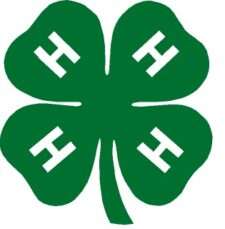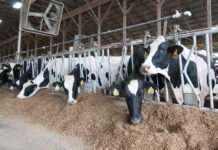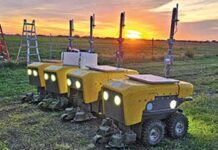Kansas moves to updating progress as activities occur
MANHATTAN, Kan. – It has been said that, often, the devil is in the details.
Kansas 4-H youth development specialist Amy Sollock figures that’s likely apropos for keeping track of activities, accomplishments and other day-to-day parts of living.
“Record-keeping isn’t necessarily anyone’s favorite life skill, but it’s a necessary one,” Sollock said. “If done right, it can be pretty painless and quite astounding to look back on all that you’ve accomplished.”
For the more than 70,000 Kansas youth who annually participate in 4-H, record-keeping is required as part of membership in the state’s largest youth organization. Each year, those youth track such things as the projects they’re involved in, what they’ve accomplished and what they’ve learned.
“Families are so busy, and so we’ve seen a trend over the last decade in which these forms are done in retrospect; in other words, the youth fill out and complete the forms right before they’re due,” Sollock said.
“We want to reverse that so that kids record and write notes as they participate in activities throughout the year.”
She added that Kansas 4-H has launched a new record-keeping form for the 2020/2021 4-H program year – known as the Kansas 4-H Project Report Form – online.
“We usually sell ourselves short when we try to go off our memory. We are encouraging whatever system works for each family so that the youth is not sitting down in August and September and trying to remember everything that they’ve done the previous 12 months.”
“I encourage 4-H families to find a system that works for them,” Sollock said. “Some families keep notes on a smart device to add to the forms later. Some print out the forms and keep a pencil and paper copy. And others write notes on a calendar that’s on a magnet on the refrigerator.”
As in many parts of life, keeping yearly records will be a permanent memory for youth and perhaps boost their future careers, according to Sollock.
“We know that these are valuable life skills that kids are learning throughout the 4-H process,” she said. “For those who advance through the program and have those documents in high school, it can often help them when they’re applying for college or for a job. We hear over and over again how valuable these records are.
“It’s true that keeping records is not most people’s favorite thing to do, but it is important to learn how to record things, keep them organized and then be able to look back on them.”
FOR PRINT PUBLICATIONS: Links used in this story
Kansas 4-H project record form, https://www.kansas4-h.org/resources/4-h-library/awards-and-recognition/ProjectRecognition.html
Kansas 4-H, www.kansas4-h.org
K State Research and Extension is a short name for the Kansas State University Agricultural Experiment Station and Cooperative Extension Service, a program designed to generate and distribute useful knowledge for the well being of Kansans. Supported by county, state, federal and private funds, the program has county extension offices, experiment fields, area extension offices and regional research centers statewide. Its headquarters is on the K State campus in Manhattan. For more information, visit www.ksre.ksu.edu. K-State Research and Extension is an equal opportunity provider and employer.
Story by:
Pat Melgares
785-532-1160
[email protected]
For more information:
Amy Sollock
620-275-9264
[email protected]




